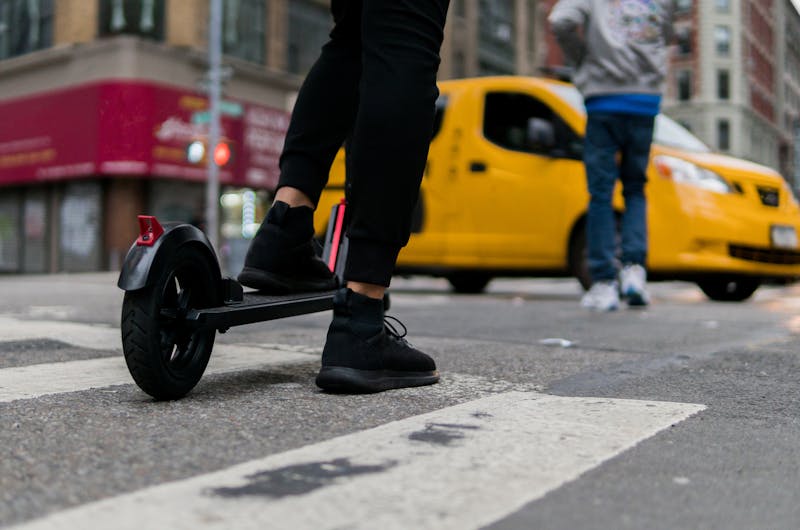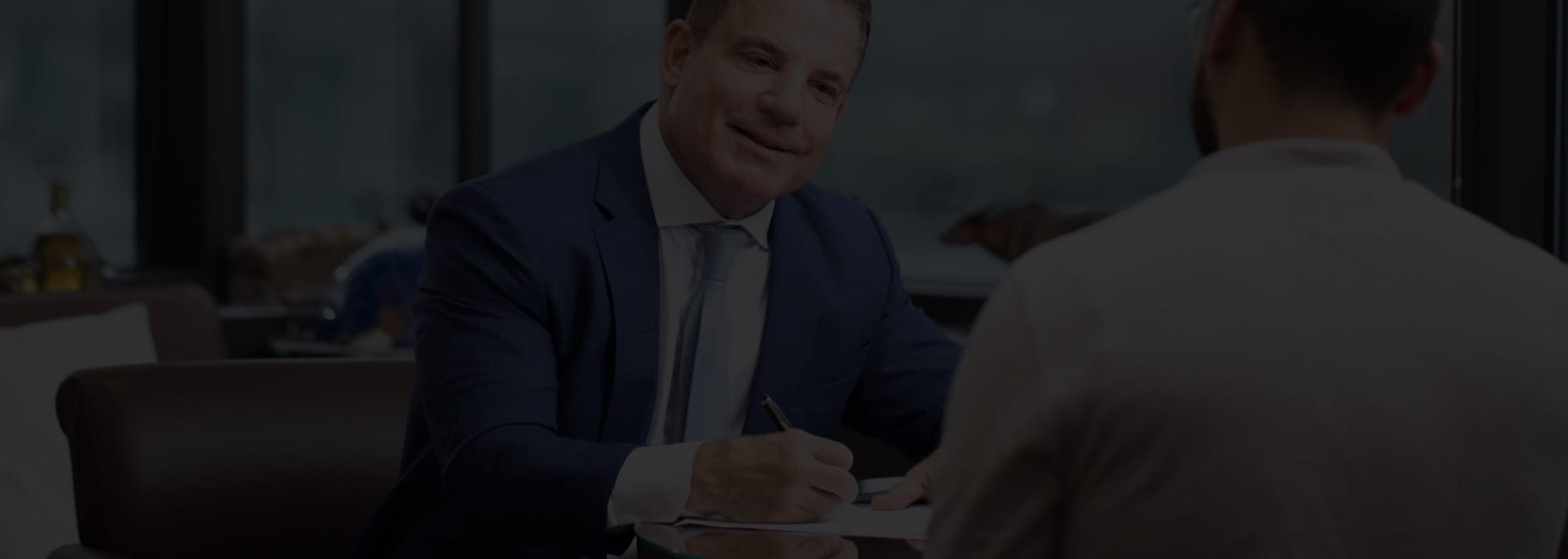
Scooters have become an increasingly popular mode of transportation in New York City, offering a convenient and eco-friendly way to navigate the city's bustling streets. Moreover, as scooter usage has surged, so too have accidents involving these vehicles.
Liability in Scooter Accidents in New York City
Liability in a scooter accident in New York, like other motor vehicle accidents, typically hinges on the concept of negligence. The party that is found to have acted negligently, resulting in the accident, can be held liable for damages. Several parties can be potentially liable in a scooter accident:
Motor Vehicle Drivers
- Driver Negligence: Motor vehicle drivers who are distracted, speeding, or otherwise negligent can be held liable if their actions cause a collision with a scooter. Common scenarios include drivers failing to yield the right of way to a scooter rider or not checking blind spots before turning or changing lanes.
- Violation of Traffic Laws: If a driver violates traffic laws, such as running a red light or stop sign, and subsequently hits a scooter, they are likely to be held liable for the accident.
Pedestrians or Other Scooter Riders
- Pedestrian Negligence: In some cases, pedestrians can be liable if their negligent actions contribute to a scooter accident. For instance, a pedestrian who jaywalks or steps into the path of a scooter without warning could be held partially or fully responsible for the resulting collision.
- Collision Between Scooters: In cases where two scooters collide, the rider who was negligent or violated scooter laws may be liable for any injuries or damages caused to the other rider.
Municipalities
- Poor Road Conditions: If the scooter accident was caused by poor road conditions, such as potholes, debris, or inadequate signage, the municipality responsible for maintaining the road might be held liable. However, pursuing a claim against a government entity often involves specific legal procedures and deadlines.
- Faulty Traffic Signals: If malfunctioning traffic signals or inadequate road markings contribute to the accident, the local government could be liable for failing to maintain safe road conditions.
Scooter Companies
- Product Liability: If a mechanical defect or malfunction in the scooter contributed to the accident, the manufacturer or the company providing the scooter might be held liable under product liability laws.
- Failure to Provide Adequate Instructions: If the scooter company did not provide adequate safety instructions or warnings to the rider, they could also be held responsible for any injuries resulting from improper scooter use.
Scooter Laws in New York
Understanding New York's scooter laws is essential for determining liability in an accident. These laws govern how scooters can be operated, where they can be ridden, and what safety measures must be followed.
Legal Definition of a Scooter
- Classification: In New York, scooters are generally classified as "limited-use motorcycles," depending on their engine power and maximum speed. Scooters with a maximum speed of 30 mph or less are categorized differently from those with higher speeds.
- Licensing: Depending on the type of scooter, riders may be required to have a valid driver's license, and the scooter must be registered with the Department of Motor Vehicles (DMV).
Helmet Requirements
- Under 18: Riders under the age of 18 are required to wear a helmet when operating a scooter.
- Adults: While not legally required for riders over 18, wearing a helmet is strongly recommended for safety.
Where Scooters Can Be Ridden
- Roadways: Scooters must be operated on roadways and are not allowed on sidewalks.
- Bike Lanes: In some areas, scooters can be ridden in designated bike lanes. Riders should be aware of local regulations that may vary between different parts of New York City.
- Prohibited Areas: Scooters are not permitted on certain highways, expressways, or roadways where signage indicates they are prohibited.
Traffic Laws
- Obey Traffic Signals: Scooter riders must obey all traffic signals and signs, just like other motor vehicles.
- No Riding on Sidewalks: Riding a scooter on the sidewalk is illegal and can result in fines or citations.
- DUI Laws: Operating a scooter under the influence of alcohol or drugs is illegal and can result in serious penalties, including fines, license suspension, or imprisonment.
Determining Liability in a Scooter Crash in NYC
When determining liability in a scooter accident, several key factors come into play:
Compliance with Traffic Laws
Adherence to or violation of traffic laws by the scooter rider, motor vehicle driver, or other parties involved can significantly influence liability. Evidence such as traffic camera footage, eyewitness testimony, and police reports can be crucial in proving compliance or violations.
Condition of the Scooter
The mechanical condition of the scooter can also be a factor in determining liability. If the scooter malfunctions due to a defect, the manufacturer or rental company could be held liable under product liability laws.
Road Conditions
Poorly maintained roads or unclear signage can contribute to accidents. In such cases, the government entity responsible for road maintenance may be liable.
Eyewitness Accounts and Evidence
Witnesses who saw the accident occur, as well as any available surveillance footage or video evidence, can be critical in establishing what happened and who is at fault.
Contributory Negligence
New York follows a pure comparative negligence rule. This means that if both the scooter rider and another party are found to be partially at fault, the rider's compensation can be reduced by their percentage of fault. For example, if a rider is found to be 20% at fault, their compensation will be reduced by 20%.
Causes of Scooter Accidents in NYC: Negligent Actions of Motorists
Motorists often share the road with scooter riders in New York City, but when they act negligently, they can cause serious accidents. Here are some common types of negligent actions by motorists that frequently lead to scooter accidents:
Failure to Yield
- Ignoring Right of Way: Motorists who fail to yield the right of way to scooter riders at intersections or when merging can cause devastating collisions. Scooters are smaller and less visible, making it easier for drivers to overlook them, especially when they do not actively check for all vehicles.
Distracted Driving
- Use of Mobile Devices: Texting, talking on the phone, or using other mobile devices while driving diverts a motorist’s attention from the road, leading to accidents. Scooters are particularly vulnerable in these situations due to their size and the limited protection they offer riders.
- Other Distractions: Eating, adjusting the radio, or interacting with passengers can also divert a driver's attention from the road, increasing the risk of hitting a scooter rider.
Speeding
- Exceeding Speed Limits: Speeding reduces a driver’s reaction time and increases the severity of collisions. When motorists speed, they are less likely to notice scooters in time to avoid a crash.
- Unsafe Driving for Conditions: Driving too fast for weather or traffic conditions, even if within the legal speed limit, can also lead to accidents. Poor visibility or slippery roads can make it harder for drivers to see and avoid scooters.
Impaired Driving
- Driving Under the Influence: Motorists who drive under the influence of alcohol or drugs are impaired in their ability to judge distances, make decisions, and react quickly, all of which can lead to severe scooter accidents.
- Fatigued Driving: Fatigue can impair a driver's judgment and reaction time similarly to alcohol. Drowsy drivers are more likely to overlook scooter riders and cause accidents.
Unsafe Lane Changes
- Failure to Check Blind Spots: Motorists who fail to check their blind spots before changing lanes can easily collide with a scooter that they didn't see. Scooters often travel in the same lanes as cars but are less visible due to their size.
- Improper Signaling: Failing to use turn signals or signaling too late can prevent scooter riders from anticipating a vehicle's movement, leading to accidents.
Tailgating
- Following Too Closely: Motorists who follow scooters too closely can cause rear-end collisions if the scooter rider needs to stop or slow down suddenly. Scooters can stop more quickly than larger vehicles, making tailgating especially dangerous.
Ignoring Traffic Signals
- Running Red Lights or Stop Signs: Drivers who run red lights or stop signs put scooter riders at high risk, as scooters are often harder to see and slower to accelerate through intersections.
- Ignoring Pedestrian Crosswalks: Failing to stop for scooters in pedestrian crosswalks when turning or entering intersections is another common cause of accidents.
Improper Turns
- Left-Turn Collisions: Motorists making left turns often misjudge the speed or distance of oncoming scooters, leading to collisions. Scooters are less visible and can be underestimated by drivers, particularly in busy intersections.
- Right-Turn Collisions: Scooters traveling in bike lanes or to the right of traffic are at risk when drivers make right turns without checking their surroundings.
Opening Car Doors Without Looking
- “Dooring” Accidents: When drivers or passengers open their car doors without checking for oncoming scooters, they can cause severe accidents. Scooters traveling close to parked cars are particularly at risk for these types of collisions.
Get Strong Legal Representation from the Trusted NYC Scooter Accident Lawyer “The Bull”
If you or someone you love has suffered injuries in a scooter accident in New York City, you need a powerful advocate who won't let insurance companies dictate the terms. NYC scooter accident lawyer Michael S. Lamonsoff, "The Bull," believes in preparing every case for trial from day one, forcing insurance companies to realize that lowball settlements won't work.
Our firm aggressively litigates each case, knowing that a jury—comprised of people just like you—will ultimately decide your compensation. Our trial-ready approach, combined with our formidable record of recovering over half a billion dollars for our clients, often encourages insurance companies to settle fairly before the trial. Don't let insurers control your future; let "The Bull" fight for the largest compensation you deserve. To schedule your free consultation, call us at 212-962-1020 or fill out this online contact form.


